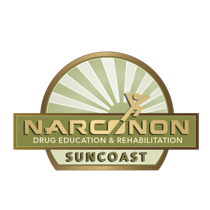This dopamine increase is one of the major reasons drugs like alcohol, cocaine, and amphetamines are addictive. When a person takes them, they feel great. Then, when the drug wears off, they crash and feel terrible. Depression and anxiety fill them to a bursting point. They need the drug in order to stop feeling this way. What they are really feeling is the exhaustion of their dopamine levels.
Studies have indicated that men release more dopamine when drinking than women, which might be why more men end up becoming alcoholics than women.
Alcohol = Poison
We have explored what alcohol does to your brain. What does it do to the rest of your body?
The human body sees alcohol as a poison. This is because alcohol actually does nothing beneficial for you and harms your system. As soon as you sip on a drink, your body begins fighting to turn alcohol into something harmless.
When you take a drink, your body fights back by producing an enzyme which works to make the alcohol non-toxic. If you keep drinking, your body eventually just can’t keep up. The speed at which your body becomes overwhelmed has to do with how much you are drinking, how fast, and what the alcohol by volume is per drink.
The body tries to get rid of alcohol by pushing it through your digestive system and filtering it – along with any other toxins you have consumed – through your liver.
Alcohol actually affects your whole body, your digestive system, liver, pancreas, heart, and lungs. It slows down the function of these organs, making them work harder and less efficiently. This is why alcohol can cause organ failure and actually kill people who have been drinking heavily for many years. It is also why alcoholics frequently suffer from cirrhosis of the liver.
Death due to years of alcohol abuse is very preventable. Our goal is to save people from this circumstance, rehabilitate them so they are no longer addicted to alcohol and can live drug free and happy. In order to achieve this, you need to reach out to us and let us know if you or a friend are suffering from alcoholism.
Signs of Alcoholism
Here are a few signs of alcoholism:

- Drinking on a daily basis
- Craves alcohol
- Hiding their constant drinking
- Getting “black out drunk” – this is a state wherein the person appears to be just drunk, but they don’t remember what they did at all once they become sober
- Having “secret stashes” of alcohol
- Drinking just to cope with life
- Experiences withdrawal symptoms like tremors, illness, headaches, depression, mood swings, and more when stops drinking
- Encountering health problems due to drinking
- Changes habits or hobbies in order to have more time to drink
- Loses their job or begins to fail in classes because of their drinking
- Experiences tolerance – meaning they need a large amount of alcohol to get drunk

Surprisingly, since the body builds up a tolerance to alcohol, as it does with many drugs, an alcoholic may need more alcohol to produce the desired effect. Thus boasting of one’s ability to “hold his liquor” may, in fact, be a sign of alcohol abuse.
If you or someone you know are experiencing any of the above symptoms, or you believe you are an alcoholic, contact us today at (877) 850-7355. We have the best success rate you will find anywhere.
Refs:
Niaa.nih.gov, Drugabuse.gov, CDC.gov, Forcon.ca, Alsa.org, RXlist.com, Forbes.com


